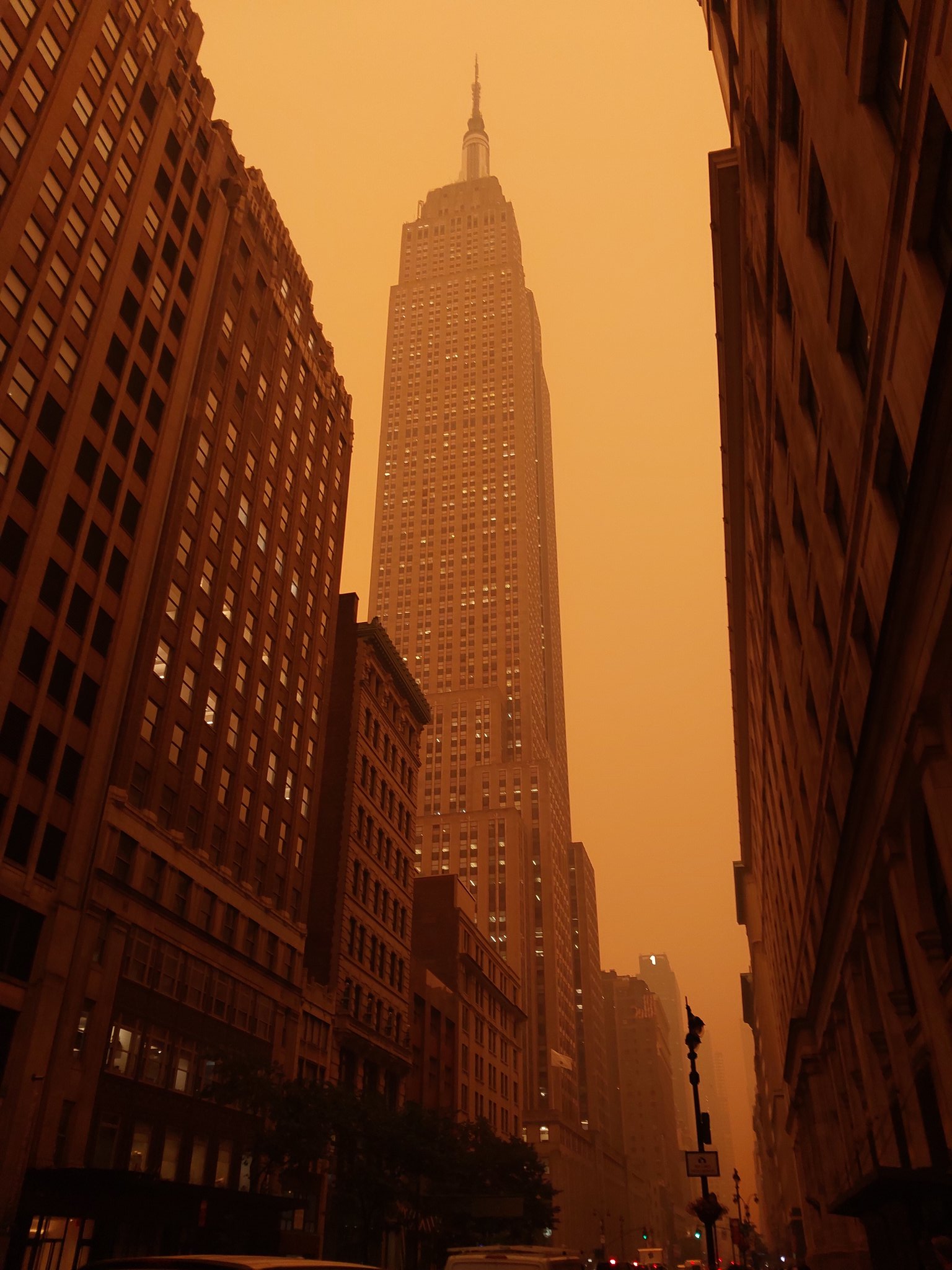Just last week the skies over the northeast and mid-United States turned a lurid orange and smelled of smoke. An alert was broadcast and people were urged to remain indoors. Those who are most vulnerable were warned of possible respiratory consequences.
The cause of this worrying event was out-of-control wildfires in Canada. More than 400 are currently tearing through many parts of British Columbia and Alberta in the country’s west, as well as Nova Scotia, Quebec and parts of Ontario in the east. Around one-third of these fires are burning in the eastern part of the country, a region that is not used to dealing with large fires.
On Tuesday afternoon, another fire was advancing rapidly toward a logging road raging through Canada’s immense — and highly flammable — boreal forest with a force and intensity bewildering to a team of French firefighters.
The 109 French firefighters had arrived in northern Quebec about a week ago to assist nearly 1,000 Canadian firefighters and soldiers, the first foreign reinforcements to help the province tackle the extraordinary outbreak of forest fires that sent smoke to New York and other cities across North America, forcing millions indoors because of hazardous air quality.

Initially deployed to three areas in northern Quebec, the French were converging this past week on an area called Obedjiwan — a hot spot about 400 miles north of Montreal by road.
Despite their impressive experience in fighting fires back in France, here they felt helpless.
“We’re not back home,” said the commander, Fabrice Mossé, as a plume of fire shot up from a cluster of trees nearby, and as an increasingly nervous Canadian logging supervisor who had led the French to the spot said: “The fire’s going to be here any minute. We can chat, but let’s do it 20 kilometers away.”
Back at the base, Mossé said, “If anybody in New York is wondering why there’s smoke there, it’s because the fires here are unstoppable.”
“Unstoppable,” he repeated.
The experience of the French contingent illustrates the challenges of fighting wildfires in Canada as climate change increases the dangers to its boreal forests, the world’s largest intact forest ecosystem and the biggest terrestrial carbon vault. Resin, the sap in the conifers, is highly flammable.

Used to aggressively and quickly attacking much smaller wildfires in France, the French firefighters must adapt to a land space whose scale has left them in awe: Quebec province is three times the size of France, and is ravaged by fires sometimes a hundred times as large as what they are used to confronting. It’s been humbling for the seasoned firefighters who went in aid, bringing what they thought was adequate experience.
But there was a “fatalism” in fighting fires in Canada, said one French commander: Fighting them often meant letting them burn, especially in thinly populated areas, and trying to stop them from spreading.
“For us, it’s absolutely impossible to let fires burn,” said Gen. Eric Flores, the leader of the French contingent who is from the Hérault department in southern France, a region with regular wildfires. “In my department, there isn’t a fire that isn’t within 10 kilometers of houses and people. If I let it burn, it will become uncontrollable. That’s why we attack fires very rapidly.”
The battle for Obedjiwan was taking place in a typical patch of Canadian boreal forest: It was inhabited by a single community of about 2,000 members of the Atikamekw First Nations in the reserve of Obedjiwan, not far from a critical hydroelectric dam.
Gravel and dirt roads carved out by a Quebec logging company, Barrette-Chapais, crisscross the vast area surrounding Obedjiwan, which is also home to the Indigenous community’s sprawling ancestral hunting grounds.
Until the French arrived, several immense fires north of Obedjiwan had been left alone as Quebec’s wildfire agency focused its efforts on the province’s inhabited areas, especially the largest city, Chibougamau. As fires reached within 13 miles of Obedjiwan, hundreds of older residents, children and others were evacuated to the nearest city, about four hours away by road.
Unable to directly confront fires as they would have back home, the French adopted a defensive posture by suppressing embers in charred areas next to intact ones, in consultation with their liaison to the Quebec wildfire agency, Louis Villeneuve, a veteran of more than two decades.
“It’s the immensity of the boreal forest, the immensity of Canada, and the boreal forest is a fuel,” Villeneuve said.
The fires are unstoppable, and the best they can hope for is to keep them from doing as much damage as possible. A hard and bitter lesson for the French firefighters who found that they had much to learn from their Canadian counterparts.












